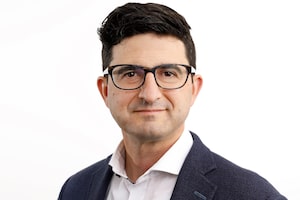Versant Ventures and Sanderling Ventures are at the vanguard of global trends in drug development.
It seems like just yesterday that drug development in Canada was in critical condition, with the downsizing of Big-Pharma research labs here in the early 2010s, the demise of domestic biotech startups and the ascendancy of Canadian rollup machine Valeant Pharmaceuticals International Inc., which slashed the R&D budgets of acquired drug firms. The ratio of Big-Pharma R&D spending to sales in Canada fell from 10.6 per cent in 2001 to 4.9 per cent in 2015.
But biotech plays are back in vogue, big time. Thomson Reuters data show that venture capitalists had invested $932-million in Canadian life-science firms so far in 2016, the most on record in a single year and 78 per cent higher than all of 2015. Two deals alone this quarter account for $350-million of this year's haul, and four of the largest 11 Canadian VC deals this year have involved life-sciences firms. The Patented Medicine Prices Review Board reports R&D spending in Canada by patent-holding drug developers rose 9.7 per cent last in 2015 – the first increase in eight years – to $869.1-million.
"The momentum is palpable, with much more to come," said Ilse Treurnicht, chief executive officer of Toronto's MaRS Discovery District, home to Johnson & Johnson's new JLabs incubator.
Leading the way are two San Francisco Bay-area venture capital firms – Versant Ventures and Sanderling Ventures – that are at the vanguard of global trends in drug development. Both have been busy since expanding here three years ago.
"The reality is there's very little competition" to invest in Canadian biotech, said Brad Bolzon, Versant's Guelph-born managing director. He said Versant has invested more than 20 per cent of its latest global $305-million (U.S.) venture fund in Canada, twice what it had anticipated, and believes Versant could pour "at least" the same rate of future investments into Canada. (Versant is now raising a sixth, $350-million fund).
On Monday, Versant, with $1.9-billion (U.S. and all the rest of the figures in the story are U.S.) under management, is announcing Toronto-based Northern Biologics – a drug development firm it created in partnership with American giant Celgene Corp. two years ago – is merging with Spain's Mosaic Biomedicals SL. Toronto will remain headquarters for the combined entity, which has $50-million in venture capital from its founders to fund human trials next year for a Mosaic drug intended to shrink cancerous tumours.
The merger follows a recent watershed deal that will see Versant and Bayer AG invest $225-million (US) to create BlueRock Therapeutics, based at MaRS, which intends to commercialize regenerative medicines from stem cell research. Another Versant-backed firm, Ottawa's Turnstone Biologics Inc., recently raised $41.4-million to develop a drug aimed at shrinking tumours.
Since 2013, Versant has opened incubators in Vancouver, Toronto and Montreal (employing several researchers from Merck & Co.'s former renowned Montreal R&D lab), launched five companies, made two other seed investments and supported 10 academic grants, amounting to $500-million invested by the firm and others. "In a pretty short time we've become the most active company builder and early stage investor in life sciences, and our hope is it's just the beginning," said Versant's Vancouver-based managing director Jerel Davis.
Sanderling, a 37-year-old VC firm from San Mateo Calif., likewise has big hopes, with a stated goal of creating several biotech firms in Quebec, attracting total investment exceeding $500-million. Its biggest deal so far is DalCor Pharmaceuticals, which raised $100-million this year to give second life to a cholesterol drug abandoned by Roche Holding AG after it proved ineffective during clinical trials. Researchers from the Montreal Heart Institute drug believe it could still prove effective in people with a particular genetic mutation.
Not surprisingly, Canadian investors, including Teralys Capital, Northleaf Capital Partners, BDC Capital and the Fonds de solidarité FTQ have backed recent Sanderling and Versant funds. The Caisse de dépôt et placement du Québec and billionaire André Desmarais are also DalCor investors.
Versant and Sanderling aren't just financiers but company creators staffed by doctors and researchers, who build firms around cutting-edge science and scientists while bringing global partners to the table. The idea is to build developers to such a stage that Big Pharma companies will buy them, or investors will support them as stand-alone public companies. (Versant has had 65 such "exits" in its 17 years).
The ascent of such firms is "timely," said Ms. Treurnicht, as Big Pharma firms have been challenged by declining product pipelines and rising development costs. Outside firms, partially financed by them, can effectively find breakthrough drugs, "de-risk" the science and advance development to the point the giants are willing to invest in latter stages of development and commercialization, she said.
 Sean Silcoff
Sean Silcoff